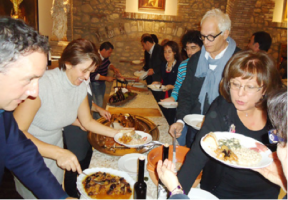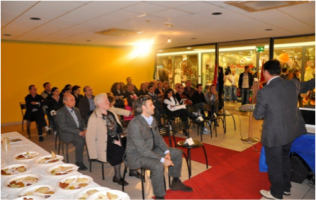Taste Education
May 28, 2013
Contributor: Slow Food Valdemone Messina
Workshop:
Governance, synergies and local systems / Final consumers: General Public
Taste Education is a workshop for the development of the senses and the study of all aspects of food.
The taste workshops are special tastings led by experts in traditional products and also by restaurateurs and producers that accompany the people who participate in the discovery of the food and wine of quality.
The taste workshop is intended as a way to communicate consumer awareness of local food from local producers. The aim is also to organize a purchasing group.
The workshop is divided into two phases:
– a learning path with knowledge of the history and the tradition of the products. Here participants will learn the three basic principles of slow food:
Good: a fresh and flavorsome seasonal diet that satisfies the senses and is part of the local culture;
Clean: food production and consumption that does not harm the environment, animal welfare or people’s health;
Fair: accessible prices for consumers and fair pay conditions for small-scale producers.
– a sensory journey with tasting of different products emphasizing the senses of taste, sight and smell. Participants can touch, smell, taste, and compare what is described and narrated by interacting with the speakers.
Benefits (environmental/social/economical…)
Knowledge and awareness of traditional products and the area and the quality of products and food.
Pro:
local food can be bought, which helps small producers and therefore the local economy
Contra
the economic crisis affects the choice of food for families in low and middle income groups that prefer to purchase industrial products and lower quality that costs less.
Through this project people will get used to tasting the true flavours of foods and will tend to buy quality products.

